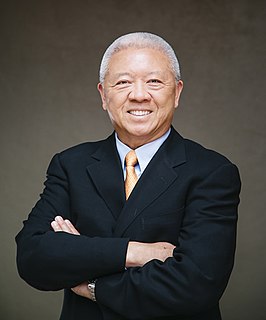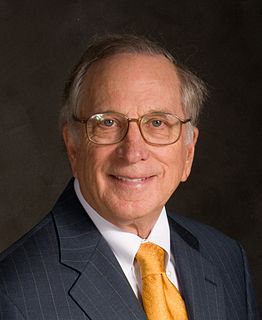A Quote by Pat Buchanan
While immensely beneficial to Seoul, is this U.S. guarantee to fight Korean War II, 64 years after the first, wise? Russia, China and Japan retain the freedom to decide whether and how to react, should war break out. Why do we not?
Related Quotes
However, there is a fundamental difference between the issue related to Japan's history and our negotiations with China. What is it all about? The Japanese issue resulted from World War II and is stipulated in the international instruments on the outcomes of World War II, while our discussions on border issues with our Chinese counterparts have nothing to do with World War II or any other military conflicts. This is the first, or rather, I should say, the second point.
When I grew up, in Taiwan, the Korean War was seen as a good war, where America protected Asia. It was sort of an extension of World War II. And it was, of course, the peak of the Cold War. People in Taiwan were generally proAmerican. The Korean War made Japan. And then the Vietnam War made Taiwan. There is some truth to that.
Revolutionary war is an antitoxin that not only eliminates the enemy's poison but also purges us of our own filth. Every just, revolutionary war is endowed with tremendous power and can transform many things or clear the way for their transformation. The Sino-Japanese war will transform both China and Japan; provided China perseveres in the War of Resistance and in the united front, the old Japan will surely be transformed into a new Japan and the old China into a new China, and people and everything else in both China and Japan will be transformed during and after the war.
If we [Americans] are a strong people, a united people, why do we always have to hear how great we are? What is this self-love? Where does this come from? It got worse, because after the war we thought we'd won it. That's the first myth. Frankly, Russia won it. The Soviet Union sacrificed far greater form than anyone else to win that war. Secondly, we had the atomic bomb. We should not have dropped it on Japan. We did as an example to the Soviets, not to defeat Japan and to save American lives. These are myths that we explode with a lot of research early on.
We desire peace. However, if imperialism insists on fighting a war, we will have no alternative but to take the firm resolution to fight to the finish before going ahead with our construction. If you are afraid of war day in day out, what will you do if war eventually comes? First, I said that the East Wind is prevailing over the West Wind and war will not break out, and now I have added these explanations about the situation in case war should break out. Both possibilities have thus been taken into account.
I think in many ways, the Spanish Civil War was the first battle of World War II. After all, where else in the world at this point did you have Americans in uniform who were being bombed by Nazi planes four years before the U.S. entered World War II? Hitler and Mussolini jumped in on the side of Francisco Franco and his Spanish nationalists, sent them vast amounts of military aid, airplanes, tanks - and Mussolini sent 80,000 ground troops as well - because they wanted a sympathetic ally in power. So I think it really was the opening act of World War II.
There is a myth that the New Deal programs on their own pulled the US out of the Great Depression and created the conditions for the economic boom after World War II. As an economist, I can tell you, that is not true. In reality, it was mainly World War II that launched the boom - the massive war mobilization, the horrifying destruction and death caused by it, and then the reconstruction in its aftermath. he US was the only advanced capitalist country that was not bombed during the war.
































